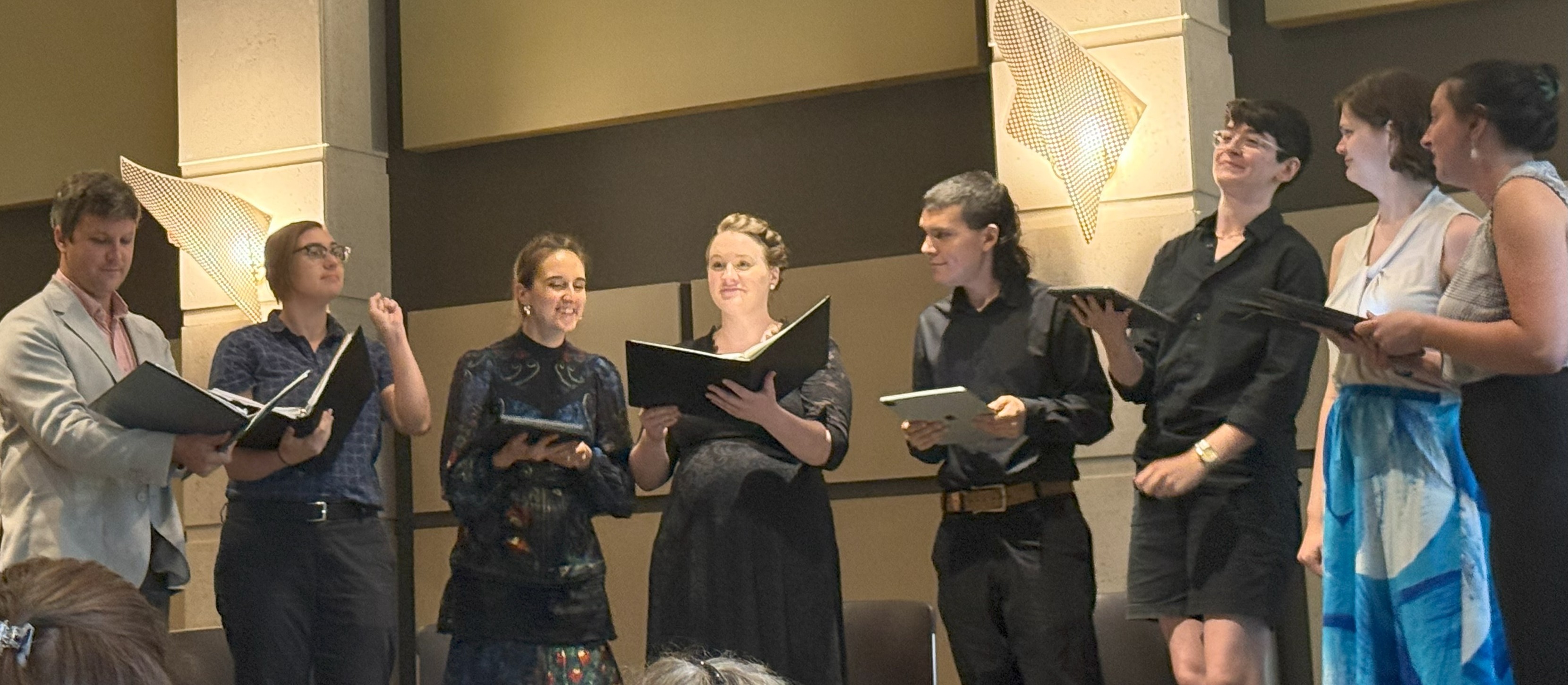Muhlenberg College
2400 W Chew St
Allentown, PA 18104
United States
What have the Normans ever done for us?!
Anglo-Norman Song and the Rise of English (12th-14th centuries)
Instructors:
Benjamin Bagby - (course director) voice
Lisa Solomon - voice
Lawrence Rosenwald - language, pronunciation, rhetoric, interpretation
Explore the world of song in medieval England, during the long span of transition following the invasion of England by the Duke of Normandy, William the Conqueror (1066) and the re-emergence of English as a serious language for sung spiritual poetry in the 14th century.
For many generations, an occupying French-speaking aristocracy dominated the spheres of English government, administration and the Church. Aside from Norman French (and Latin, which was used by all intellectuals and sung everywhere in the liturgy), the early occupiers also enjoyed French chansons and Occitan cansos at their most sophisticated courtly functions. The linguistic and musical synergy of medieval England attests to a vital yet divided cultural scene. Several famous kings of England (such as Henri II and Richard Lionheart) did not even speak English, or only in rudimentary form. Middle English held its ground in many circles, but the French-speaking aristocracy viewed English with disdain, a rough Germanic tongue. But the language was adapting and absorbing French elements, and by the 13th century, thanks to the radical new mendicant orders, especially the Franciscans, the use of Middle English became more widespread, an insular language 'of the people.' By the time of Chaucer, English was again the language of England, luminous and transformed by its long dalliance with Norman invaders.
Instead of a focus on specific composers (most pieces are anonymous) or famous manuscripts (there is no central source), we will instead look at a variety of sources where Anglo-Norman and English songs have survived. There will be solo singing in Middle English, Anglo-Norman French, and Latin. Most of the earlier songs are religious in nature. We singers will be guided through the labyrinth of languages by our resident 'language whisperer' and rhetorician, Larry Rosenwald. The monophonic songs (and a few surviving in polyphonic form), will be developed under the care of Benjamin Bagby and Lisa Solomon. Our team is now reunited for the third time under the banner of AEM, with a working friendship dating back to pre-Covid times.
Open to advanced-level solo voices by audition (deadline April 15). There is the possibility of including a very experienced instrumentalist or two (especially medieval vielle or harp) interested in exploring song accompaniment. Non-participating auditors are welcome, as space permits. Audition due date April 15.

Above: Medieval Project Singers in performance at the 2025 Amherst Early Music Festival.
A note from Course Director Ben Benjamin Bagby on sources:
When possible, we will refer to the transcriptions in the edition of songs from British sources in the collection Musica Brittanica (vol. 95), Songs in British Sources, edited by Helen Deeming (2013). We will try to have one copy of this on hand at the session.
Another useful resource is the book Medieval English Songs by E.J. Dobson (texts) and F. Ll. Harrison (music), London (1979). These transcriptions are sometimes very unclear and misleading and should be used with caution. The text editions by Dobson are excellent, as are his copious notes.

